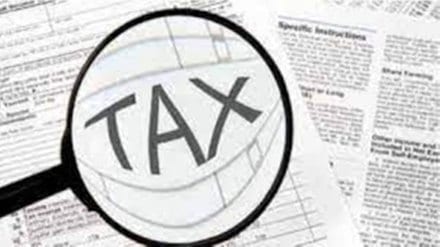Indians are increasingly showing interest in purchasing overseas property and investing in global equity markets. Foreign investments provide the required diversification in one’s domestic portfolio. Buying US stocks from India has become much simpler with international brokerage platforms such as Vested Finance, Stockal and Groww amongst others. While investing in US stocks has become easier, reporting and disclosing foreign assets in the income tax return (ITR) is important for Indian taxpayers. Taxpayers with foreign investments need to choose the right ITR Form.
The Income Tax India Twitter handle has tweeted about the same today. The due date to file ITR for A.Y. 2023-24 remains July 31, 2023 and there is no mention of any extension of the deadline to file ITR.
“Kind Attention: Holders of foreign bank accounts, assets & income!
Please fill the Foreign Asset Schedule in the Income Tax Return (ITR) for A.Y. 2023-24 and disclose all Foreign Assets (FA)/ Foreign Source of Income (FSI) if you have foreign bank accounts, assets or income.
Due Date to file ITR for A.Y. 2023-24: 31st July, 2023.”
If you are a salaried employee filing the ITR 1 form but also holding US stocks, you could be filling out the wrong ITR Form. “Any taxpayer who has any asset (including financial interest in any entity) located outside India, has signing authority in any account located outside India or has income from any source outside India is not eligible to furnish their tax returns in either Form ITR-1 (SAHAJ) or ITR-4 (SUGAM) (applicable in case of opting for Presumptive scheme).
Thus, Indian investors buying US stocks from international brokerage platforms cannot opt for Form ITR-1 (SAHAJ) or ITR-4 (SUGAM) for filing their ITRs and would be required to file their income tax returns in Form ITR-2 or ITR-3 depending upon the nature of their income or foreign assets held by them and to fill the relevant Schedule FA (Schedule on Foreign Assets held outside India),” says Dr. Suresh Surana, Founder, RSM India.
While filing the relevant ITR Form, such taxpayers will also have to fill out Schedule FA and Schedule CG. “Schedule FA is required to be furnished by every Indian resident taxpayer in order to furnish details of foreign assets or accounts, held at any time during the relevant accounting period. Schedule CG is mandatory for all taxpayers transferring any capital asset held by them. Schedule CG requires the taxpayers to report their long-term as well as short-term capital gains arising from the sale or transfer of different types of capital assets,” informs Dr. Surana.
“Section 43 of the Black Money (Undisclosed Foreign Income & Assets) & Imposition of Tax Act 2015 imposes a penalty of Rs. 10,00,000 on any person, being a resident and ordinary resident in India, for failure to furnish in the income tax return any information or for furnishing inaccurate information relating to an asset (including financial interest in any entity) located outside India,” adds Dr. Surana.
Schedule FA Details
- Foreign Depository Accounts
- Foreign Custodial accounts
- Foreign Equity and Debt Interest
- Foreign Cash Value Insurance Contract or Annuity Contract
- Financial Interest in any Entity outside India
- Details of Immovable Property
- Details of any other Capital Asset
- Any other account located outside India in which you are a signing authority
- Trust created outside India in which you are a trustee, a beneficiary or settlor
- Any other income derived from any foreign source
Schedule CG details
- Cost of acquisition of the capital asset (indexed cost in the case of long-term capital assets)
- Cost of improvement, if any (indexed cost in the case of long-term capital assets)
- Expenditure wholly and exclusively in connection with transfers
- Full value of consideration
- Date of Transfer and Date of Purchase
- Valuation of property as per stamp duty valuation authority in the case of the sale of land or buildings
- Deductions under Sections 54, 54B, 54EC, 54F, 54GB (if eligible), etc.
How are dividends and capital gains to be shown in ITR?
Dividend Income would be required to be disclosed in the Schedule OS. Taxpayers earning any income by way of dividends would be required to provide a quarterly breakdown of the same under head “Income from other sources”. Further separate disclosure is required in ITR-2 and ITR-3 for dividend income charged at special tax rates, such as dividends earned on any GDR purchased in foreign currency u/s 115AC or 115ACA of the IT Act.
Treatment of Capital Gains in ITR-2 and 3
Individual taxpayers with gains arising from the transfer of any capital asset held by them would be ineligible to file ITR 1 and ITR 4 and thereby would be required to file ITR-2 or ITR-3, as applicable. Capital gains arising from the sale or transfer of different types of capital assets have been segregated in Schedule CG. In a case where capital gains arising from the sale or transfer of more than one capital asset of the same type, the taxpayer would be required to make a consolidated computation of capital gains in respect of all such capital assets of the same type except for certain capital assets such as Long Term/ Short Term Capital Gain arising on sale of Immovable property, etc.
